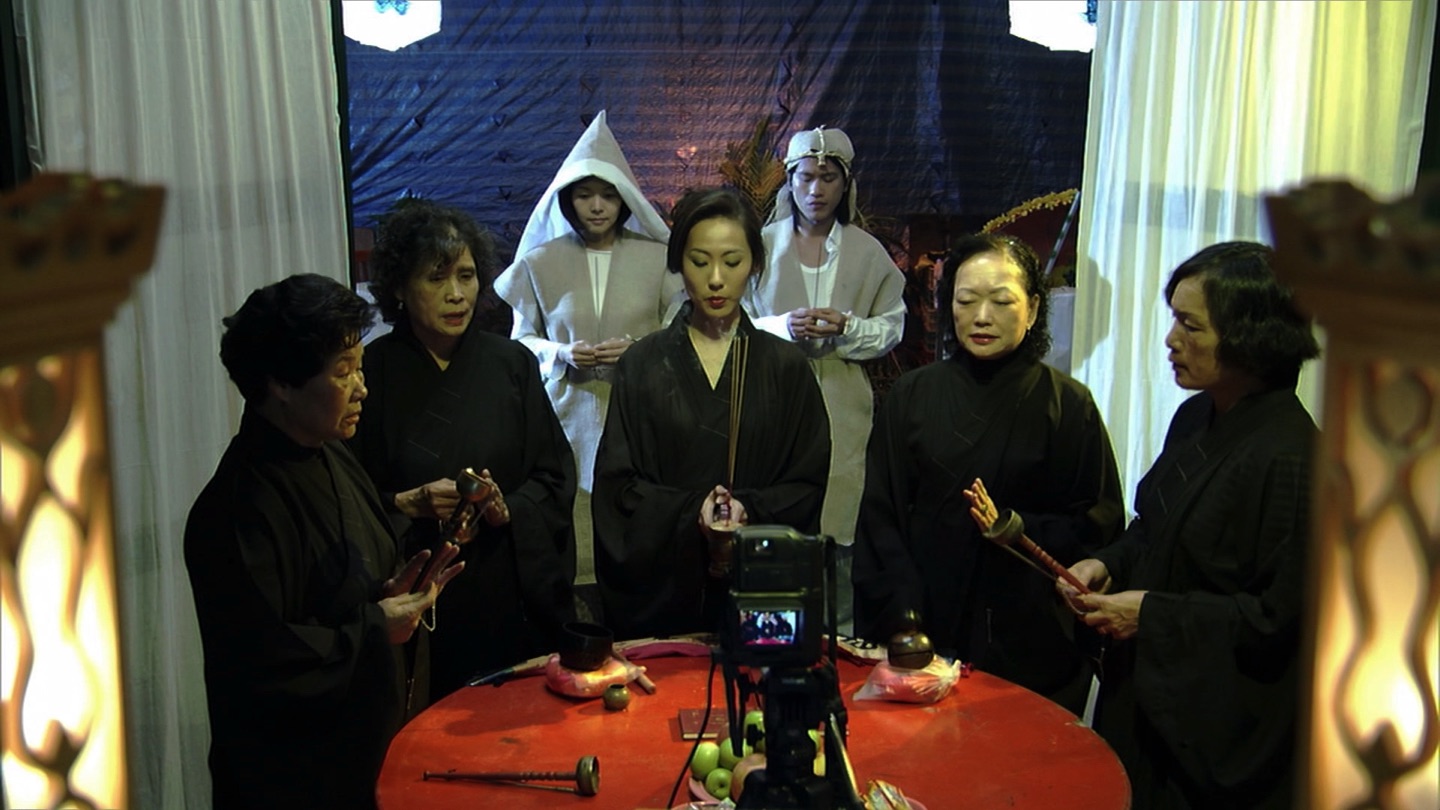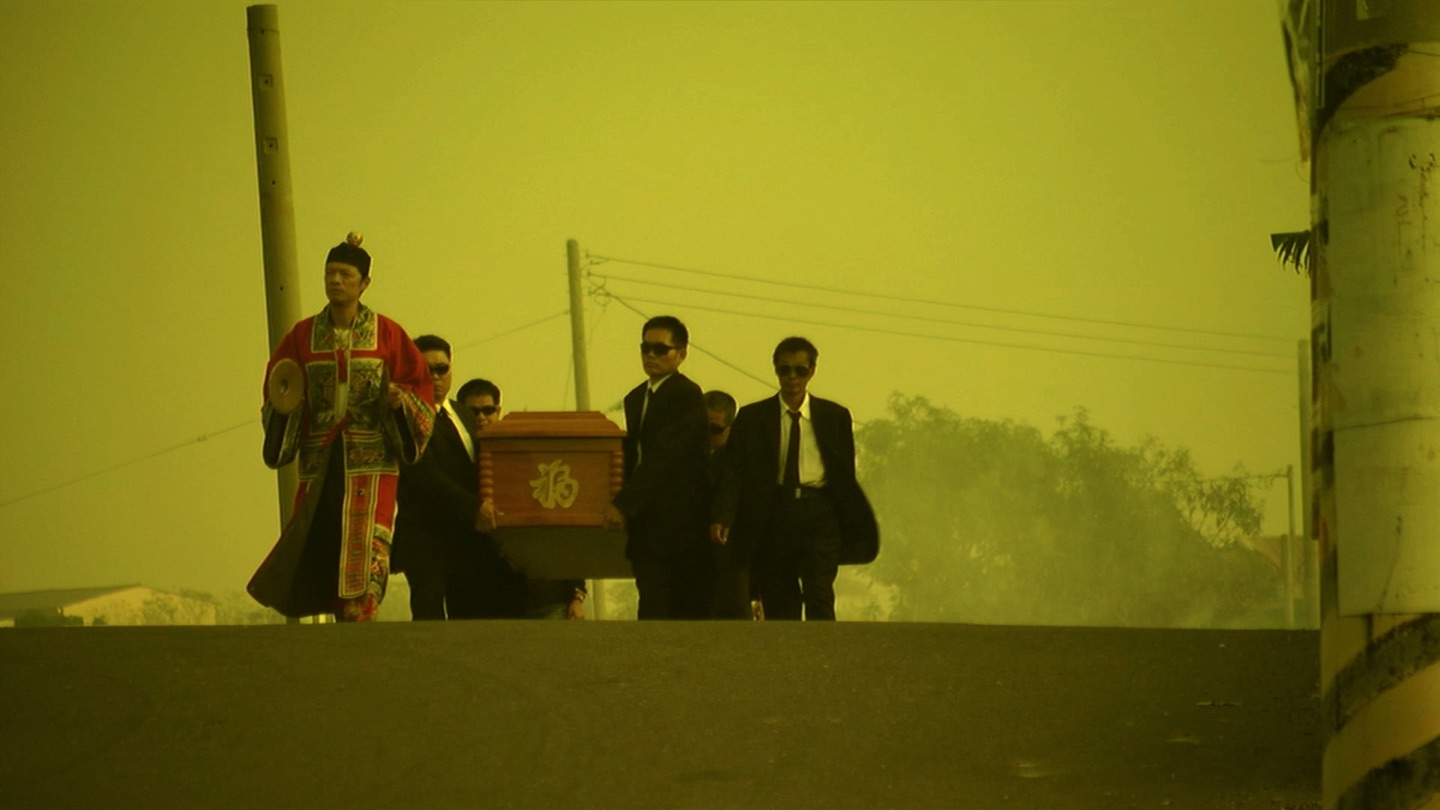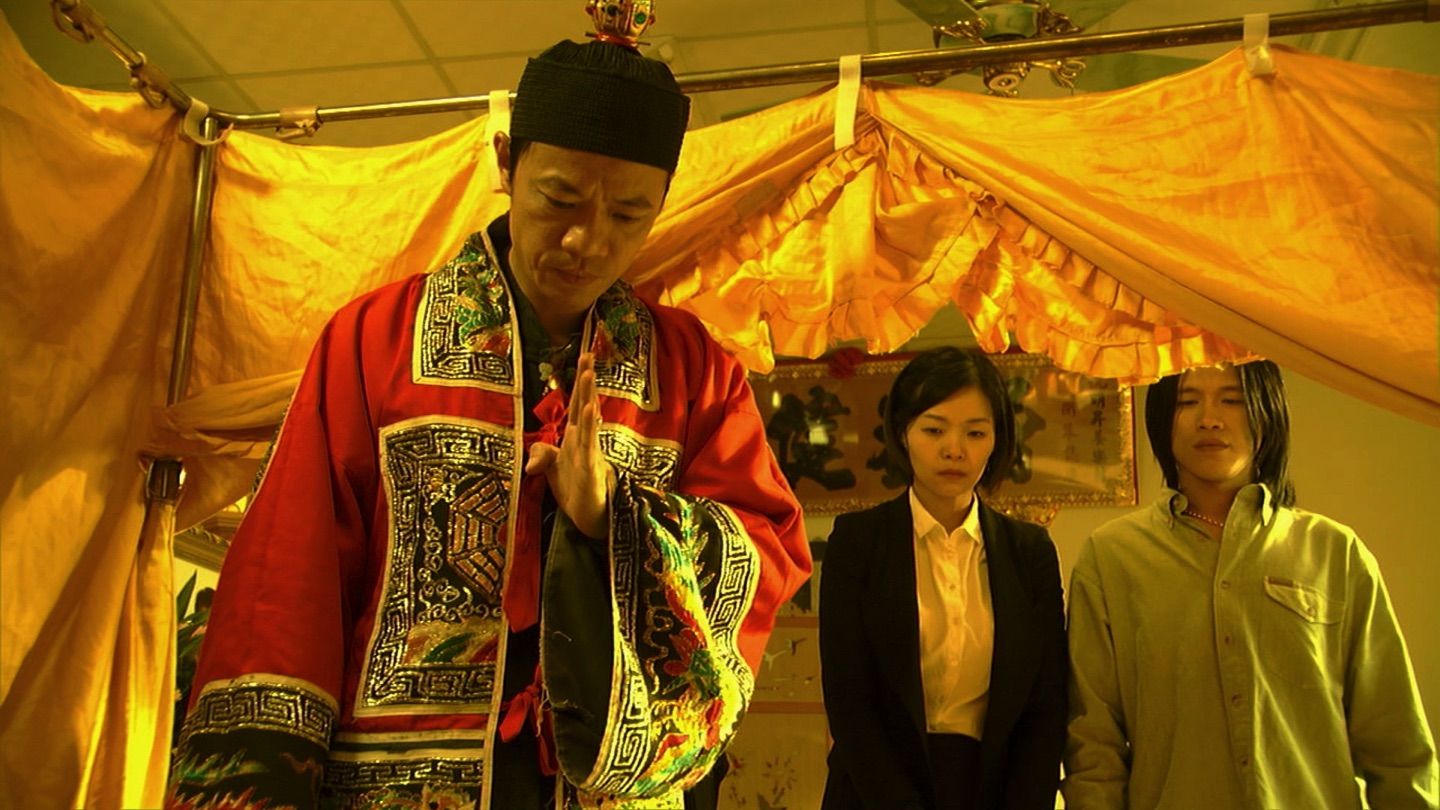by Brian Hioe
語言:
English
Photo courtesy of Cheng Cheng Films
This is a No Man is an Island film review written in collaboration with Cinema Escapist as part of coverage of the 2023 Toronto International Film Festival. Keep an eye out for more!
SEVEN DAYS IN HEAVEN blends the comic and surreal, in the context of a traditional Taiwanese funeral. The movie follows the Lin family, which runs a night market stall for shooting games and is coping with the death of the family patriarch, Lin Guo-yuan.Through the family’s traditional mourning rites, the movie explores the various dilemmas of its protagonists.
Seven Days in Heaven is an ensemble work, if nothing else. The film manages to juggle its large cast well. It balances the perspectives of the various characters, though it never focuses on any specific individual. In this way, Seven Days in Heaven can be situated alongside other Taiwanese family dramas with large casts, such as Ang Lee’s Father Knows Best trilogy, or a number of Edward Yang’s films.
Nevertheless, Seven Days in Heaven distinguishes itself from such films with its working class, Taiwanese benshengren cast. Many Taiwanese New Wave films focus on the malaise of waishengren families with middle-class if not elite backgrounds in urban areas, with the notable exception of Hou Hsiao-hsien. By contrast, the cast of Seven Days in Heaven is distinctively working class. The movie also stands out in that it is set in the countryside of Pingtung and most dialogue is in Taiwanese Hokkien.

Photo courtesy of Cheng Cheng Films
The film is not afraid to mock the absurdity of traditional religious practices in Taiwan. This is inclusive of how mourners who have no relation with the deceased were traditionally hired to cry at funerals, Likewise, this touches on the strong sexualized element of some mourning practices—most famously known with regards to the presence of strippers and pole dancers at funerals.
However, the story most highlights the bizarre intersection of electoral politics, local prestige, and funeral practices. This comes to the fore with a subplot involving a county councilor that buys flowers for the funeral, in the hopes of soliciting votes.
Indeed, Seven Days in Heaven largely does not have a dominating plot, but follows a number of subplots among its expansive cast. This is largely shot as though the movie were an art film more than if it were a cinematic work. But it is this that grants Seven Days in Heaven its distinctive look and feel as a movie. It may be a weak point, however, that there is no central character or that the shared focus among members of the cast–largely the various members of the Lin family–does not allow for a substantial look into the subjectivities of the characters.

Photo courtesy of Cheng Cheng Films
Despite its mockery, the film is heartfelt. Indeed, it is based on an award-winning autobiographical essay by scriptwriter/co-director Essay Liu about her own family experiences. Liu and her co-director Wang Yu-lin have largely gone on to produce hit works after Seven Days in Heaven, such as The Tenants Downstairs and Alifu, the Prince/ss. However, these later works do not feature the same experimentalism as Seven Days in Heaven—or its youthfulness.
All in all, Seven Days in Heaven manages to capture something distinctively Taiwanese with its plot. One can compare it to Fruit Chan’s Made in Hong Kong, perhaps, with its sense of youthful and flippant rebellion. Although Seven Days in Heaven may be a family drama, in some sense, it never takes itself so seriously as to forget its sense of humor.
This is what causes the movie to stand out, and what has led it to become a classic. Nevertheless, in the broader span of Taiwanese cinema, Seven Days in Heaven is overlooked—along with works such as Betelnut Beauty and Dust of Angels—in that it comes from a younger generation of filmmakers than the Taiwanese New Wave. Perhaps it is due time to revisit such films.



